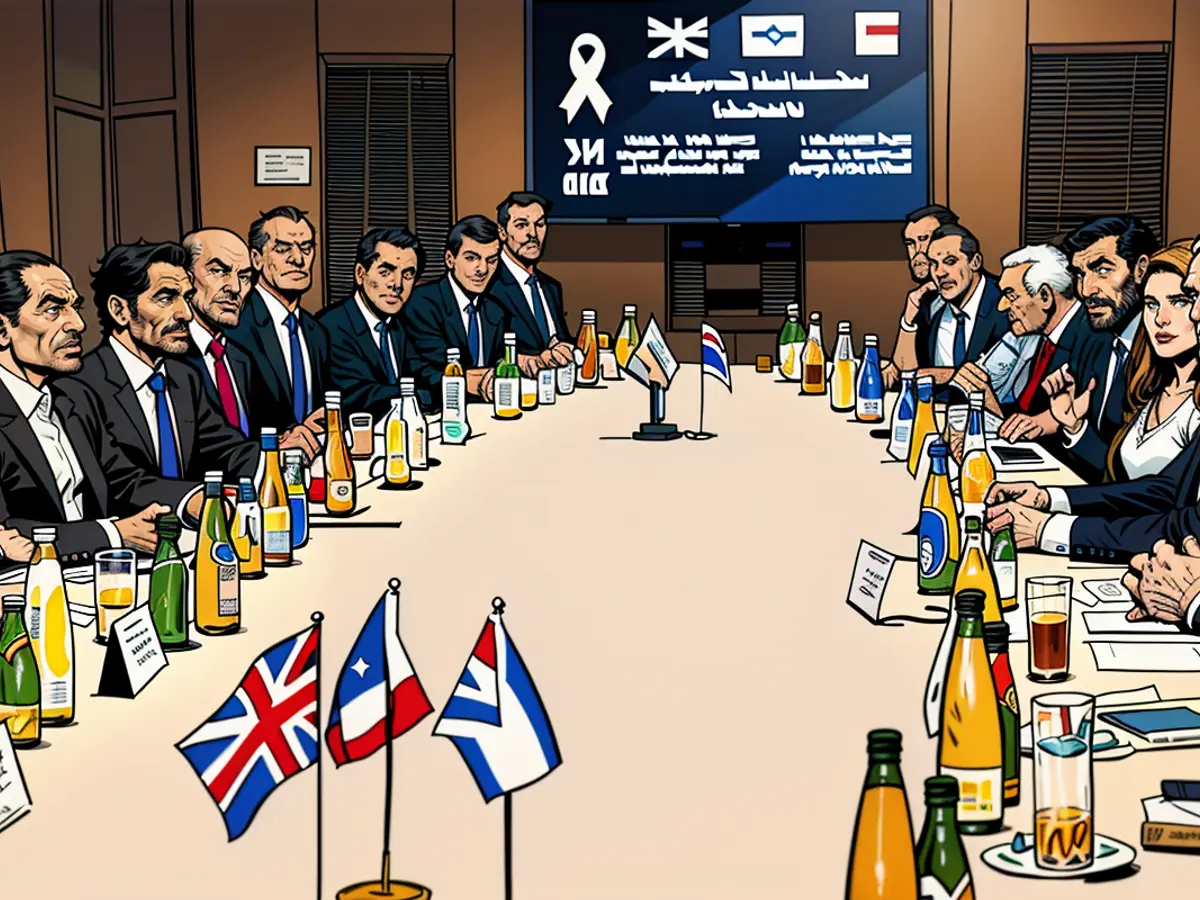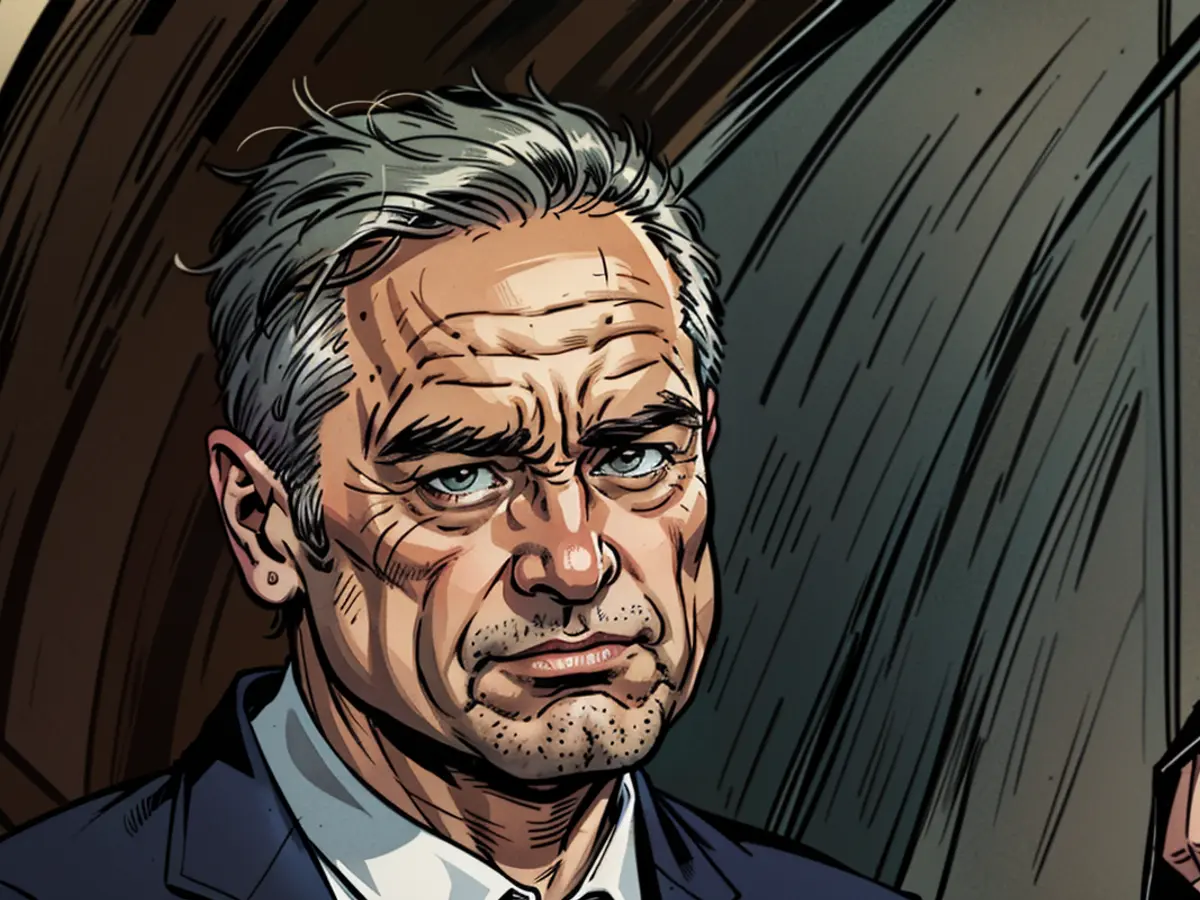Unresponsive reaction from the UK and France following Israeli Foreign Minister's advocacy for retaliation against any potential Iranian attack.
During a gathering aimed at thwarting escalation and facilitating a captive exchange, Katz voiced his thoughts in Jerusalem, joining forces with his British and Israeli counterparts, as per the Israeli foreign office's account.
Despite this, both France and the UK have chosen to tone down such prospects, with the UK emphasizing the importance of halting the "existing harmful cycle of retaliatory violence" in the Middle East.
At a press conference in Jerusalem, French Foreign Minister Stéphane Séjourné declared it unfit to discuss "retaliation or preparation for an Israeli retaliation" during the ongoing diplomatic negotiations.
Katz's statement emerged amidst mounting apprehensions of retaliatory strikes from Iran, in response to the assassination of Hamas' political leader Ismail Haniyeh in Tehran. Iran alleges Israel's involvement, but Israel remains cryptic regarding their involvement.
When questioned about Katz's statement, a UK foreign office representative underscored their commitment to collaborate with allies in de-escalating tensions, urging all parties to desist from fueling the destructive cycle of retaliatory violence.
They appealed to Iran and its allies to halt attacks that could intensify regional tension and undermine the possibility of reaching a ceasefire and hostage release agreement. They asserted that no nation derives benefit from an escalation in the Middle East.
A source familiar with the meeting between the Israeli, French, and UK foreign ministers informed CNN that the discussion did not encompass the formation of a coalition for any offensive against Iran.
Meanwhile, a senior US administration official delivered a more stern message, warning of severe consequences, particularly for Iran, if they opt to strike Israel and broaden the conflict in the Middle East.
The official advised Iran, through intermediaries, to abstain from attacks, revealing the existence of a "path" to attain a ceasefire and hostage agreement. They distinguished the de-escalation process and potential ceasefire agreement as separate yet concurrent efforts.
When inquired by CNN's MJ Lee whether the US would intervene in any offensive against Iran after Katz's comments, the senior administration official evaded the question, labeling the situation as "highly speculative."
They confirmed the deployment of military resources in the region suitable for all possible contingencies, and their close collaboration with partners and allies. They assured readiness for any contingency and their commitment to defend Israel, while refraining from revealing any further details.
The official reiterated that warnings of an impending attack from Iran have become almost daily events over the past two and a half weeks. They remained non-committal, simply stating their preparedness.
In light of the ongoing tension in the Middle East, the European Union has expressed concern over the escalating situation and urged all parties to avoid actions that could worsen the situation. The EU, including countries like France and the UK, believe that dialogue and diplomacy are the key to resolving conflicts and maintaining peace in the world.
Furthermore, the European nations have emphasized the importance of upholding international law and respecting sovereignty, as they believe that stability in Europe and around the world is closely intertwined with peace in the Middle East.








